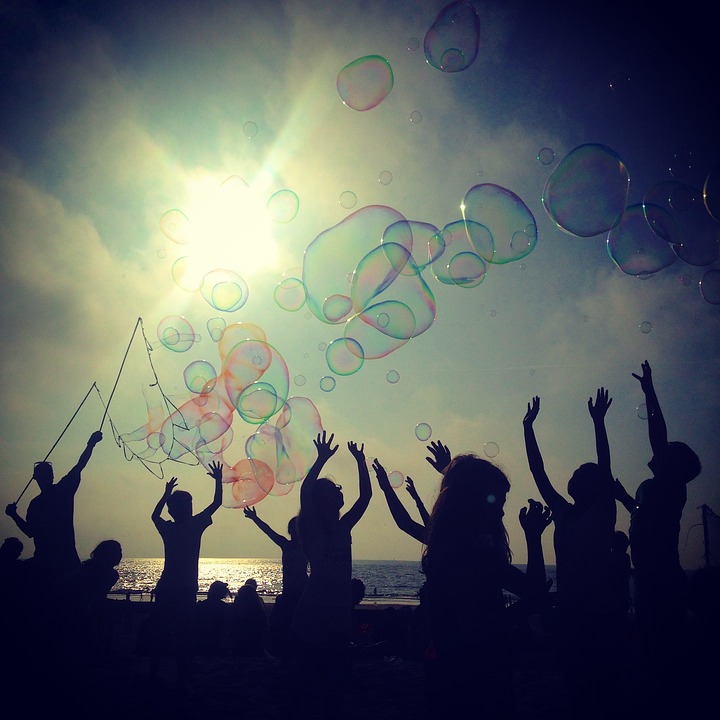Few things makes me as happy as blowing bubbles. Especially when grown-ups are the ones blowing the bubbles. Yes, it’s the child-likeness of the activity, but what enthralls me, is the playfulness of it all. I saw it on the beach this summer holiday, stoic adult faces relaxing when children run and squeal, trying to catch and puncture the huge soap bubbles floating lazily in the summer breeze.
It reminded me of the rural artist/ farming village of Rosendal in the Eastern Free State which I was introduced to in 2009. I have some mad and eccentric friends, and one of them dragged me along after a dreadful 2008 – my personal annus horribilis (just Latin for a horrible year). It was a year in which I was house-robbed and mugged several times, while struggling to adapt to the seemingly chaotic landscape of South Africa after relocating from the relative tranquillity of Switzerland. So there I was on a Sunday morning after church service, standing on the embankment of a farm dam dressed in First World War combat gear, together with an eclectic crowd dressed as a bride, a Frenchman, a tennis player, Jules Verne, Marie Antoinette etc., ready to dive into the murky water for the first Rosendal Regatta. With cows looking on (one person nearly drowned, while everyone else thought he was playacting – he was saved by a bearded deep-sea explorer Jacques Cousteau in a canoe). And so I played the whole 3 weeks of summer – and I wondered why? What happens when we play?
Later, again reading James Nelson for my Master’s, he explains play as being integrally related to pleasure as a form of sensuousness. Men especially, can find it difficult to play in a society focussed on the masculine image with a strong need to control, combined with a rational work ethic. Play is closely related to culture, contemplation, wholeness (through human sexuality), and a healthy balance. Playfulness requires the devaluation of control as the main activity. Play is egalitarian and depends on cooperation, openness and freedom.
This implies that in order to play, one must learn to trust that the environment will not injure one; it means that one has the ability to relax long enough to enjoy one’s own vulnerability. When I play, “I am open to trust and spontaneity, to surrender to the involuntary, only as I am able to trust my beloved and my own body-self. But the ability to trust is not an achievement. It is a gift”
